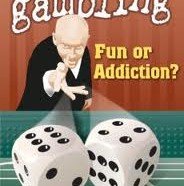The Other Side of Gambling: Knowing When to Stop
From a July 2005 article that appeared in Time Magazine…
For a man who hasn’t bet a nickel since 1989, Bruce Roberts spends a lot of time in casinos. He’s rarely there alone, however. He usually has an escort walk him through–the better to ensure that he doesn’t succumb to the sweet swish of the cards or the signature rattle of the dice. A onetime compulsive gambler, Roberts, 62, weathered his years of wagering better than many. He never lost his wife or his home–although he has refinanced the house nine times. “Cards and Vegas were the two biggest things in my life,” he says. “I’m a helluva poker player, but I have one serious flaw: I can’t get my ass off the chair.”
Todd’s Take: Sometimes we all get lost in the delusions of grandeur and the financial upside of being a great gambler. My goal isn’t to play psychologist or shrink but it is to take an active interest in everyone that visits the blog seeking advice. Rarely in sports do we address the problem gambler but they exist in all our circles and as a result the topic warrants discussion. There’s no stereotypical depiction of a problem gambler; its a sum total of actions and behaviors that creates warning signs we all should be paying attention to in those closest to us. Whether it’s chemical, genetic, or psychological, when gambling stops being fun and starts becoming dangerous to your or your loved ones make sure you take a step back and regain perspective on the big picture rather than becoming fixated on the bad beat that just won’t leave you alone. For 99% of people out there, gambling should be a hobby, nothing more. When our hobby starts becoming more trouble than it’s worth, it’s time to ask for help












